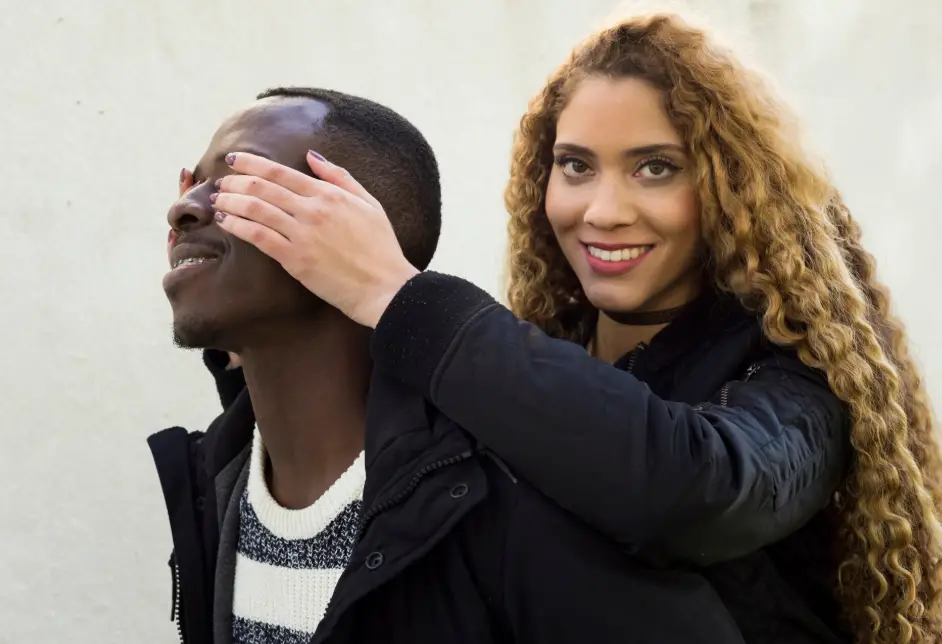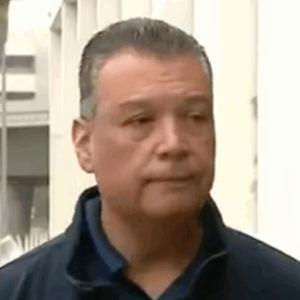Prologue: A Mother’s Vigil by the Sea
In the waning light of Floralia’s final hour, I, Julia Aemilia, stood at the threshold of our modest villa overlooking Bar Harbor’s restless waters. The wind came swift as Mercury’s winged sandals, stirring the lace of my stola and carrying the briny breath of the sea. Behind me lay the marble hall where my parents, Titus and Flavia Cornelius, awaited my husband’s and my arrival—our first journey together since our nuptials, one year hence.
All their life, my parents had shown Dariel of Pontus courtesy tempered by reserve—their laughter at his jests perfunctory, their salutations measured. Yet now, beneath the evening star, I felt a tremor in the household’s foundation, as though they suspected a secret I would not yet whisper.
Thus begins the account of how a single gesture—his hand upon my womb—shook the pillars of propriety, and how truth, once loosed, reshaped our family’s destiny.
I. The Pilgrimage to the Cliffs
At sunrise, we donned our traveling cloaks and descended the narrow path hewn from living rock. My father, with gait precise as a centurion on parade, led the way; my mother, serene yet watchful, followed. Dariel and I brought up the rear, hand clasped in hand, our steps measured against the cliff’s edge.
Here, the portals of the world opened upon azure waters, dotted with isles like emerald testaments to Neptune’s craft. My mother stilled and raised her bronze mirror of observation to our countenances. “Smile,” she urged in gentle—yet insistent—tone, raising the ivory tablet of her likeness-maker (the “camera,” in modern parlance).
In that instant, Dariel’s arm curved about me, his palm alighting upon my belly with such exactitude—plants of my very heart turned to flame. Not the tender cradle of a lover’s embrace, nor the casual tether of companionship, but the firm, deliberate press of hands upon the secret within.
My mother’s hand faltered. My father’s brow arched. For a heartbeat, the air held its breath. Then, soft as the susurrus of cypress boughs, the likeness-maker shutter fell mute. No word was spoken. Only that seal of flesh upon flesh, branding our truth before any tongue could betray it.
II. Nightfall’s Conspiracy
Later, within the inn’s hushed corridors, my mother intercepted me near the tablinum. She laid her palm upon the marble board where incense vessels still smoldered, but her gaze never left my face.
“What morsel of news lies heavy upon you?” she asked in a voice that trembled between concern and command.
I, burdened by the weight of unborn life, felt my tongue cleave to my palate. “Nothing, mater,” I replied, voice fraught. “Dariel was simply…”
She cut me off with a wry laughter, tension threading through its notes. “…‘simply affectionate.’ I have served at many feasts, dear child, and I know the language of the body. Speak freely; you are safe here.”
And yet, I found no words. For how to confess that life stirred within me—a spark of Roman blood yet destined to commit me to the unknown path of motherhood? I bowed my head, tears honoring the marble floor.
III. The Storm on the Horizon
That night, the inn’s hearth crackled as thunder rumbled beyond shuttered windows. Dariel joined me in the parlor, seating himself upon the chair of worn leather. His gaze bore the question of his soul.
“Did you plan it, my love?” I whispered, fingering the hem of my tunic.
He paused, recalling of that press of his hand upon my thigh—no, upon my belly—and answered, “Perhaps. I wished to summon the debate we must no longer forestall. Yet I feared the tempest such a confession might unleash.”
All around us, the shadows of storm clouds raced like Centaur riders across the sky. We sat entwined, hearts beating against the hush, knowing the dawn would demand reckoning with parents cautious and kindly in name, but wary of change.
IV. Morning’s Reckoning
At first light, we joined Titus and Flavia for the repast of bread and spiced honey. My father, as if to dispel unease, regaled us with the annals of Bar Harbor’s founding: how settlers first trod its rocky shore, carving homes from living stone. Yet I perceived his voice tremble, as though each echo struck a resonant chord of worry.
When I rose to gather our cups of mulsum, my mother’s eyes found mine across the table. In that silent communion, she bade me speak. Swallowing the final morsel of courage, I placed my hand upon my own abdomen and proclaimed, “I bear your grandchild, mother. I am with child.”
Silence fell heavier than any Roman cloak. My father set down his cup as if it were forged of lead. My mother’s face paled, then brightened with tears unshed. “Why this clandestine veil?” she asked, voice trembling. “Were you afraid we would withdraw our affections?”
I met her gaze. “Not withdrawn, but uncertain. I wished to find certainty within our own hearts before unveiling it to yours.”
My parents’ features softened. My father reached across the table, grasping Dariel’s hand in his own. “A grandchild… sooner than I dared imagine. Yet we rejoice.” His voice cracked like a broadsword cleaving silence. My mother’s tears fell free at last.
V. The Journey to the Café and the Rocky Shore
At dawn’s second horn we prepared to depart the inn, our spirits buoyed by the gentle reconciliation of the night before. Titus, ever eager to restore normalcy, declared our destination: a humble café famed for its wheaten bread and steaming conchiform shells of garum-laced porridge. Flavia, no longer burdened by silent worry, offered soft laughter as she adjusted her palla. Dariel and I exchanged a glance of relief—our secret, once an unspoken weight, now lay between us like a shared triumph.
We made our way through Bar Harbor’s narrow lanes, each turn revealing a tableau of fishermen hauling their catch ashore, gulls wheeling overhead like winged heralds of the sea’s bounty, and merchants peddling amphorae of oil and wine. The café’s door, curved in cedar, swung open to reveal long benches hewn from driftwood and the rich aroma of freshly baked spelt loaves.
Titus seated himself at the head of the low table, immediately launching into discourse on the colony’s founding fathers, while Flavia ushered Dariel and me to the bench beside the hearth. We partook of honeyed porridge, our bowls brimming with comfort; the simple fare tasted ambrosial to our renewed hearts. Between spoonfuls, Dariel reached across and brushed my hand with his own, a gesture of solidarity that spoke louder than any vow.
When the last crumbs were consumed and tankards of mulsum drained, we set forth again—this time to the rocky overlook where the Atlantic’s waves thundered against outcrops of granite. The path wound through scrub pine and meadows dotted with lupines, the salty air invigorating our lungs. Titus, by now an eager guide, recited lines from a verse of Virgil, likening the foam-tipped breakers to the horses of Neptune’s chariot. Even Flavia smiled, her eyes alight with the azure sweep of the sea.
As we reached the crest, Dariel paused beside a boulder warmed by the sun and took my hand in his. Together, we gazed upon the rolling waters, each swell an echo of life’s ceaseless rhythms. Flavia approached, her voice gentle as the sea breeze: “Julia, Dariel—know that we stand beside you in this journey. Parenthood is no small odyssey, but our love shall be your compass.” Titus, silent until now, rested a firm hand upon Dariel’s shoulder. “You bear our daughter’s child,” he said, “and in doing so, you have become kin. Let no murmur of doubt eclipse our bond.”
In that moment, as gulls cried overhead and the Atlantic spread before us like polished bronze, I felt the final barriers to trust give way. Our footsteps, once hesitant upon this shore, now moved forward as one family, striding into the adventure of life anew.
VI. The Naming of Futures
Returning to the inn, we found the common chamber set for a modest feast: spiced fowl upon platters of pewter, bowls of lentils flavored with cumin, and cups of wine infused with sprigs of laurel. Candlelight danced upon our faces, illuminating the joy that had blossomed from yesterday’s storm.
Titus rose and raised his goblet. “To the health of the unborn Cornelius!” he proclaimed. “May this child inherit the courage of its father, the compassion of its mother, and the steadfastness of its maternal grandsire.” All present echoed the toast with hearty clinks of goblets.
Then Flavia leaned forward and regarded us both with a fond smile. “We must speak of names,” she declared. “For in our house, a name is no mere sound, but a talisman to guide the soul.” She turned to me. “Julia, thou art of Aemilian stock—strong and steadfast. What virtues do you wish to impart to your child?”
I thought upon Dariel’s gentle strength, our shared love of the sea, and the boundless horizon it represented. “Let our child be called Marina,” I answered—the name of the sea, of life’s ebb and flow. Dariel nodded fervently.
My father, his eyes glinting with pride, spoke next. “Marina Cornelius—she shall bear the spirit of these waters. And if a son, let him be called Marinus, guardian of the shore.”
Thus, the naming rite concluded, and with it came the final seal upon our family’s renewed unity. Laughter and conversation resumed, the feast lingering long into the candlelit hours.
VII. Lessons of the Tides
In the days that followed, as we prepared to depart Bar Harbor’s gentle shores, my thoughts often turned to the lessons we had gleaned. The sea, in its ceaseless coming and going, had shown us that life’s trials—like the tides—inevitably recede, leaving behind new shores upon which to build.
On our final morn, as dawn painted the sky in rose and gold, we rose before the others to walk the cliffside path once more. The world lay hushed, save for the murmur of waves and the distant cry of seabirds. Dariel and I paused at the spot where once his hand had revealed our secret. I pressed my hand over my womb, feeling the faint stirrings of new life, and whispered, “Fear no longer, for we are surrounded by love.”
Titus and Flavia joined us in silent accord. “May the tides ever carry you toward hope,” Titus intoned, placing his hand alongside mine. Flavia laid a gentle kiss upon my forehead. “And may our home always be your harbor.”
Together we stood, four souls united by blood, by promise, and by the shared adventure of the unborn child that would soon join our ranks.
VIII. Epilogue: The Voyage Homeward
As the carriage rattled along the coastal road, laden with our belongings and lighter hearts, I gazed out upon the receding shoreline, committing its contours to memory. Bar Harbor had bestowed upon us more than scenic vistas; it had granted us reconciliation, trust, and the dawning of a new generation.
Dariel took my hand in his, and together we surveyed the path that lay ahead—parenthood’s uncharted seas, where we would navigate by the stars of love and the compass of family. Behind us rode Titus and Flavia, their features softened with pride, no longer strangers to our journey but steadfast companions.
In that silent communion, I understood that truth, once unveiled, need not shatter bonds but can forge them anew in stronger metal. And so, with hearts buoyed by courage and hope, we steered our course for home—ready at last to greet the child we would name Marina, she who would join the ages of our lineage and carry forward the gifts of the tides.
IX. Preparations Within the Villa
Upon our return to the family villa on the Palatine Heights, the rhythms of daily life resumed, yet under the surface a new purpose quickened every heartbeat. Flavia Cornelius, seasoned as any matron in midwifery lore, assumed charge of my care. Each dawn she bade the nursemaids fill the alabaster bath with chamomile and rose petals, to ease my limbs heavy with life’s burden. By midday, I reclined upon cushions of embroidered silk, my hand often resting upon the swell of my gown where Marina stirred like a sea nymph awakening within her shell.
In those quiet hours, Dariel and Titus would pace the peristyle, debating the design of the infant’s cradle—whether it should bear carvings of dolphins or the she-wolf suckling Romulus and Remus. Their voices, hushed yet fervent, spoke of dreams and hopes, while outside, the farmhands tended the orchard, gathering sweet figs and pomegranates for the coming feast. Honeycomb arrived from the apiary to sweeten the porridge that nourished both body and soul, and the villa’s halls echoed with the steady chant of prayers to Juno Lucina, protector of women in travail.
I found solace in these rites, each small ceremony binding us closer. With every basket of fresh linens brought forth—soft cloths for swaddling—and every vial of myrrh and frankincense lined upon the marble shelf, I felt the impending grace of motherhood drawing near. And all the while, Marina’s movements beneath my hand foretold a strength no torrent of life could quell.
X. The Omen of Late Summer
As the days shortened and the sun slanted lower across the aqueducts, an omen arrived upon a warm evening breeze. The family augur—an old freedman who read omens in flight of birds—entered the atrium, his toga dusted with straw from his vineyard errands. He reported a flight of twelve doves circling thrice above the villa’s rooftop at midday, their wings stirring auspicious winds. “Twelve,” he intoned, “number of fate and completeness. They herald a child destined to unify divided hearts.”
Titus, heart swelling with pride, embraced me as tears welled in Flavia’s eyes. Dariel clasped my free hand to his lips, and even I, humbled by such portent, felt the tremor of destiny ripple through my veins. We celebrated that night with a modest libation of barley wine mixed with fig syrup and toasted to Marina’s health beneath the brazier’s golden glow.
Yet with portents come also tests. Within the villa’s mosaic-floored corridors, I felt the first pangs of labor—a tightening like distant thunder rolling beneath a calm sky. Flavia, alerted by the shift in my breath, summoned the midwives and his demand that all be made ready. Cushions were strewn upon the tile, basins filled with warm water, and the lamp of Vesta trimmed to cast steady light upon the sacred chamber. Dariel knelt beside my couch, his face stricken with both trepidation and resolve.
XI. The Hour of Birth
The labor’s onset came quietly at first, as though Marina were testing her strength. I pressed both hands upon the embroidered mattress, breathing through waves of contraction that pulsed through me like the tide’s relentless approach. Flavia stood at my head, whispering hymns to Juno, her voice a steady beacon, while the midwives—women of skill and serenity—chanted encouragement as they bound my gown and offered me sips of honeyed water to sustain my fortitude.
Outside, a sudden rain began to drum upon the villa’s tiles, each drop a clarion calling the world to witness this transformation. Dariel, forbidden entrance until the final moment, waited in the antechamber, hand upon the door, his heart thrumming in cadence with my own. When at last Flavia declared the time had come, she pushed open the doors, and he rushed forward, his eyes aflame with awe.
Thus, beneath the oil lamp’s steady glow, Marina emerged—a cry coursing through the room like Apollo’s lyre—her head crowned with a thatch of raven-dark hair, her skin kissed by the hearth’s warmth. Flavia caught her as deftly as any seasoned nurse, placing her upon my breast, where she nursed at once, her small hands curling around my finger as though claiming her heritage. Dariel bent low and pressed his lips to her tiny brow, tears glinting in his eyes.
Around us, the midwives chanted blessings to Fortuna and the Lares of the hearth, while Titus and Flavia offered incense and libations to the household gods. And I, overwhelmed by the marvel of new life, felt as though my own soul had been reborn—no longer merely Julia Aemilia, wife and daughter, but matrona and mother, steward of hope’s most precious seed.
XII. The Feast of Welcoming
Three days hence, we held the feast of Dies Lustricus, the naming day, in honor of Marina’s safe arrival. The peristyle was draped in verdant boughs of laurel and ivy, torches flickering against the dusk as guests arrived bearing gifts: coral amulets for protection, tiny silver rattles, and bowls of sweet spelt porridge to symbolize the nurturing future. The augur returned to confirm Marina’s auspices, noting that the infant’s cry had echoed exactly seven times—an omen of good fortune for the first seven years of her life.
Titus rose to address our assembled kin beneath the watchful gaze of marble ancestors. “Let Marina Cornelius be blessed among our house,” he proclaimed. “May she grow in strength as the oak upon our hills, and may kindness guide her days as the North Star guides the sailor.” His voice, echoing in the colonnade, settled upon every heart. Flavia then lifted Marina in her arms and presented her to the gods, scattering petals of rose and myrtle in the infant’s path. Dariel knelt, placing upon the babe’s brow a circlet of olive wood carved by his own hand.
The meal that followed was one of joyous abundance: roast lamb marinated in garum and coriander, platters of olives and fresh figs, cakes of honey and poppy seeds, and flagons of spiced wine. Laughter wove through the crowd like a silken thread, as cousins and uncles took turns cradling Marina, offering her promises of mentorship and care. Even the villa’s freedmen and slaves joined in the celebration, for in Roman custom, the child of the matron belongs to the entire household.
XIII. Reflections by the Atrium
In the quiet that follows all great celebrations, I found myself once more upon the atrium’s mosaic floor, holding Marina at my breast while the household hummed around me. Dariel sat nearby, reading aloud from a scroll of Horace’s odes, his voice a steady current beneath which lay the quiet strength of fatherhood. My parents, seated upon cushioned benches, shared stories of my own infancy—how I had first learned to walk beneath the cypress trees, how my laughter had once chased the slaves to laughter in turn.
I gazed upon Marina’s small, sleeping face, her features serene as though she already understood the weight of her name. In that moment, I understood how love transforms us: it deepens the heart’s capacity for both joy and fear, yet means we would brave any storm to guard the life entrusted to us. The journey from secret revealed to child born had tested us—our bonds strained and then reforged in purer metal—and now, as family, we stood united.
XIV. The Eternal Tides
Years hence, when Marina is grown and perhaps expects her own children beneath the moon’s soft light, may she remember the lessons learned upon Bar Harbor’s windswept cliffs: that truth, though daunting, must be spoken; that compassion extends beyond word to act; and that family, though sometimes bruised by misunderstanding, remains the harbor to which our souls may always return.
As for Dariel and me, we shall guide her as stewards of Juno Lucina’s blessings, watching her growth with eyes both proud and watchful. And my parents—Titus and Flavia—shall remain by our side, their earlier reserve transformed into devotion deeper than any sea.
So ends this chronicle of a single hand upon a mother’s womb—an act deliberate and tender—that summoned the world to witness new life and, in so doing, rekindled the bonds of kinship. May its telling endure in the hush of night and the laughter of morning, a testament that life’s greatest voyages begin with the courage to reveal our truest selves.






